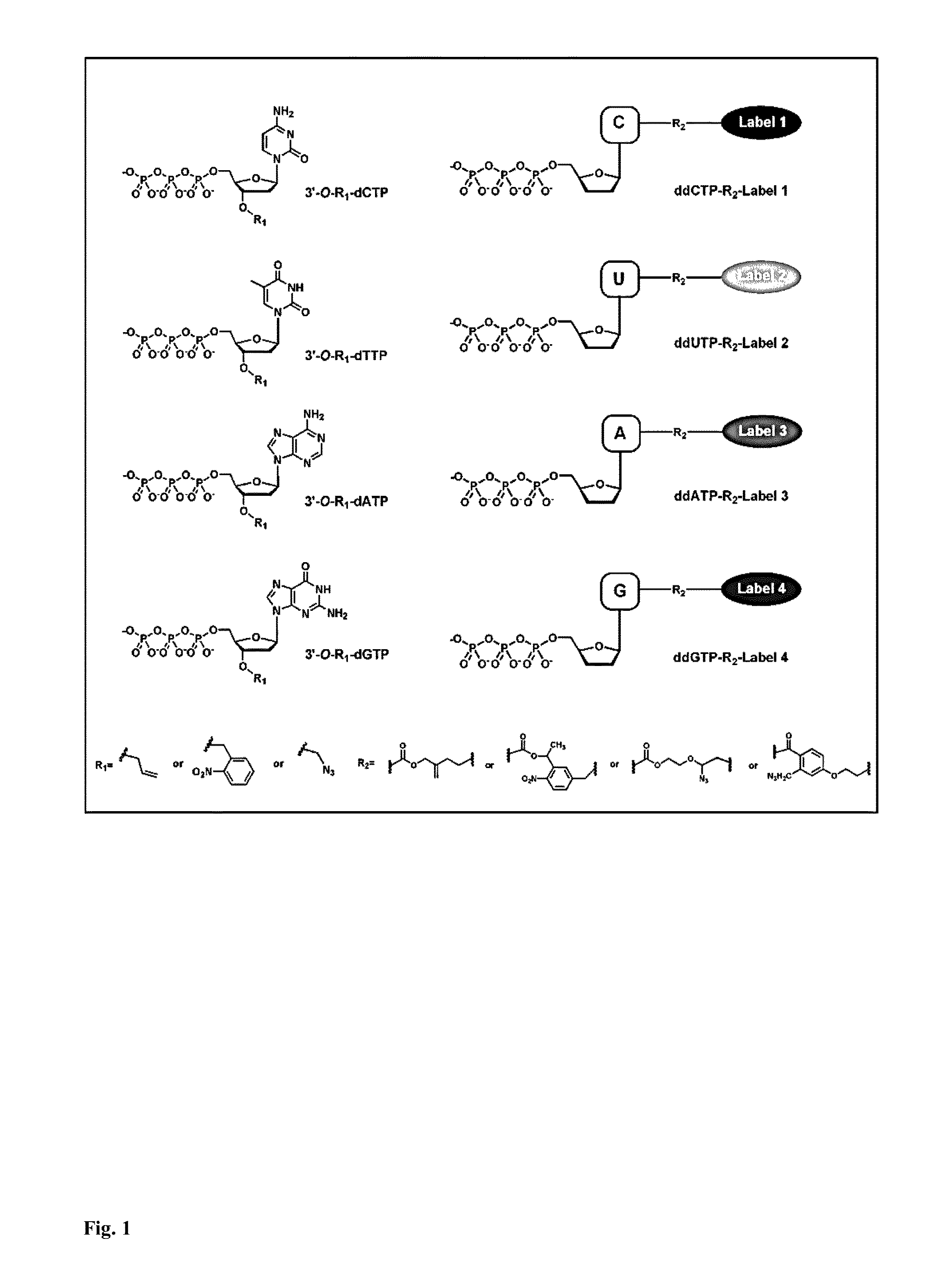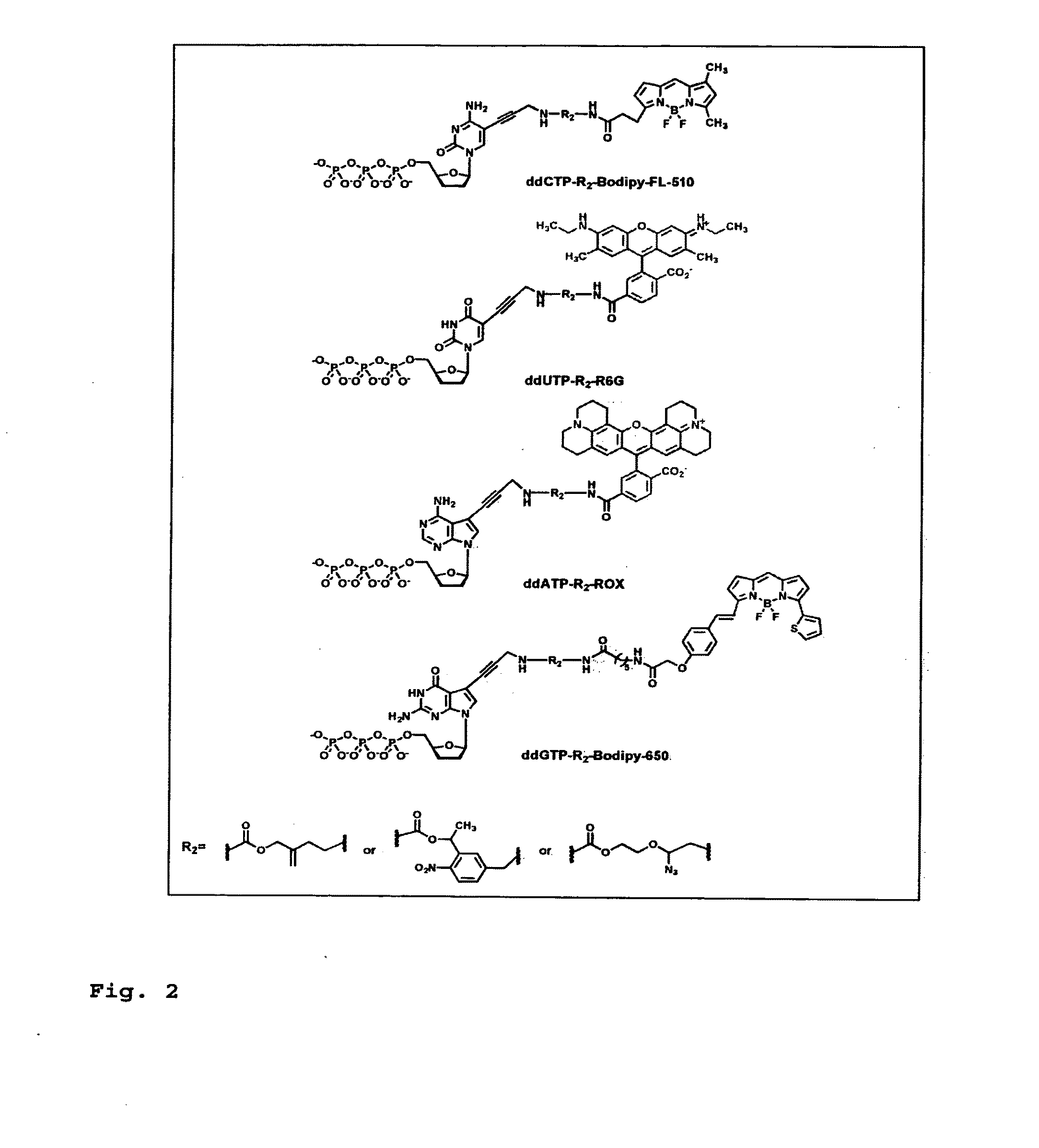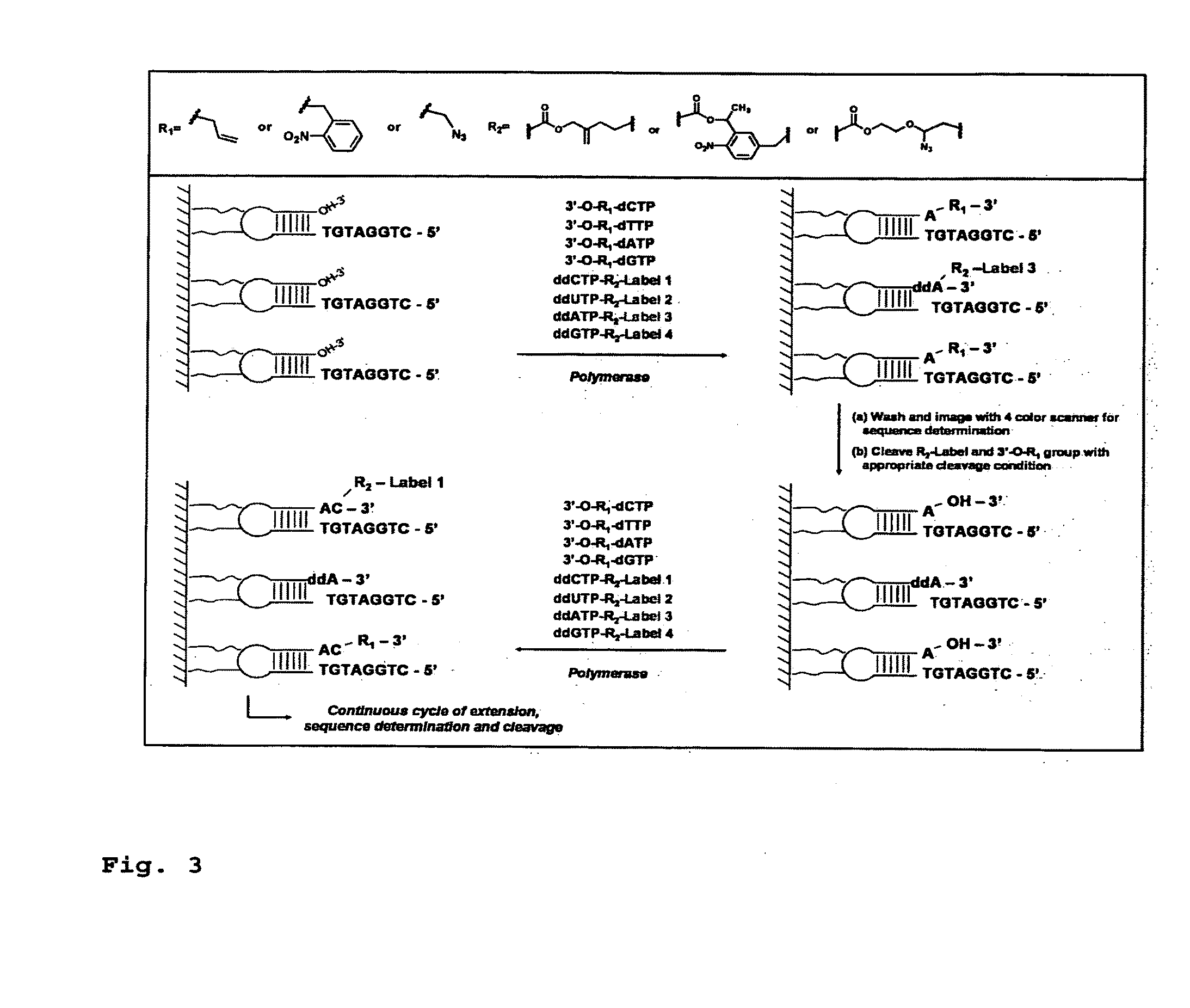DNA sequencing with non-fluorescent nucleotide reversible terminators and cleavable label modified nucleotide terminators
a technology of non-fluorescent nucleotide reversible terminators and cleavable labels, which is applied in the field of dna sequencing with non-fluorescent nucleotide reversible terminators and cleavable label modified nucleotide terminators, can solve the problems of band compression, band compression, and resolution degradation
- Summary
- Abstract
- Description
- Claims
- Application Information
AI Technical Summary
Benefits of technology
Problems solved by technology
Method used
Image
Examples
examples
1. Design and Synthesis of 3′-O-Modified NRTs and Cleavable Fluorescent Dideoxynucleotide Terminators for the Hybrid SBS
[0265]Four 3′-O-azidomethyl-modified NRTs (3′-O-N3-dNTPs) were synthesized and evaluated (FIG. 18) for use in the hybrid SBS approach. The 3′-O-modified NRTs containing an azidomethyl group to cap the 3′-OH on the sugar ring were synthesized based on similar method to that reported by Zavgorodny et al. The 3′-O-azidomethyl group on the DNA extension product generated by incorporating each of the NRTs is efficiently removed by the Staudinger reaction using aqueous Tris(2-carboxy-ethyl)phosphine (TCEP) solution followed by hydrolysis to yield a free 3′-OH group for elongating the DNA chain in subsequent cycles of the hybrid SBS (FIG. 20A).
[0266]To demonstrate the feasibility of carrying out the hybrid SBS on a DNA chip, four cleavable fluorescent dideoxynucleotide terminators were designed and synthesized, ddNTP-N3-Fluorophores (ddCTP-N3-Bodipy-FL-510, ddUTP-N3-R6G, ...
PUM
 Login to View More
Login to View More Abstract
Description
Claims
Application Information
 Login to View More
Login to View More - R&D
- Intellectual Property
- Life Sciences
- Materials
- Tech Scout
- Unparalleled Data Quality
- Higher Quality Content
- 60% Fewer Hallucinations
Browse by: Latest US Patents, China's latest patents, Technical Efficacy Thesaurus, Application Domain, Technology Topic, Popular Technical Reports.
© 2025 PatSnap. All rights reserved.Legal|Privacy policy|Modern Slavery Act Transparency Statement|Sitemap|About US| Contact US: help@patsnap.com



